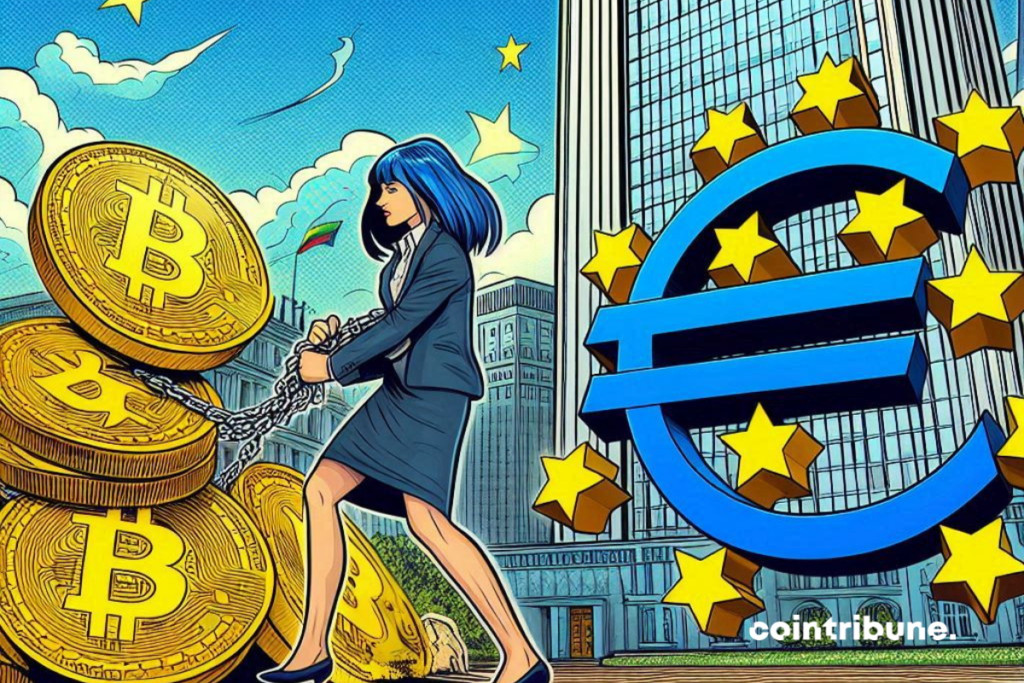End Of Cash In Europe? Rather Digital Euro Than Crypto – ECB
0
0
The European Central Bank (ECB) is actively working to curb the “crypto” phenomenon by launching its own digital euro. During the Money20/20 conference, Evelien Witlox, Director of the Digital Euro at the ECB, expressed the institution’s eagerness to see this electronic currency on the market, a solution deemed necessary in the face of declining cash usage and the rise of digital alternatives. The ECB wants to move forward cautiously but with determination.

A digital euro (instead of crypto) to adapt to new habits
No, the European Central Bank has not yet changed its opinion regarding bitcoin and other cryptocurrencies. According to a publication by Crypto.News, Evelien Witlox, a prominent figure at the institution, took advantage of her speech at Money20/20 to outline the potential implications of a digital euro. Noting a significant decrease in cash usage in Europe, she hinted that a digital euro could become essential.
According to her, “only one in five transactions is still carried out in cash” in cities like Amsterdam, which pushes the ECB to seriously consider this monetary transformation. However, she emphasized that while investment in the e-euro is very likely, it is not yet a decision set in stone.
The digital euro would be an electronic version of cash, retaining its legal tender status. This change would ensure that all merchants accepting digital payments would have to accept this new form of currency.
The initiative aims not only to modernize the payment system but also to ensure greater economic security and independence from foreign payment systems.
Witlox emphasized that it would be an asset for citizens, offering them a new, secure, and accessible payment method while strengthening Europe’s economic sovereignty in the face of the invasion of foreign payment solutions. Does crypto play a part in this?
Security and Privacy Protection in Focus
The ECB does not hide that the digital euro is partly a response to the fear that the growing reliance on non-European payment services could compromise the security of financial transactions. Cryptos are often labeled as unsafe by our governments, in fact.
Evelien Witlox expressed clear concerns about this dependence, insisting that a digital euro could enhance economic sovereignty and ensure the security of both public and private payments. Enough to allow a duel between this asset and bitcoin.
The ECB is keen to ensure that this new payment method is inclusive, allowing everyone to participate in the digital economy without barriers to access.
In terms of security and privacy, Witlox was very clear: the ECB does not want to become a Big Brother of financial transactions. Privacy protection and security are top priorities, and technical solutions like “privacy by design” will be implemented.
This includes options like offline digital euros, ensuring that even without an internet connection, transactions remain confidential.
The goal is to avoid the creation of a programmable currency, which could potentially be used to monitor or control users. Otherwise, it would be pure economic totalitarianism.
In sum, the e-euro presents itself as a modern solution to the challenges posed by the decline in cash usage and the rise of cryptocurrencies, while reinforcing Europe’s security and economic sovereignty.
0
0









